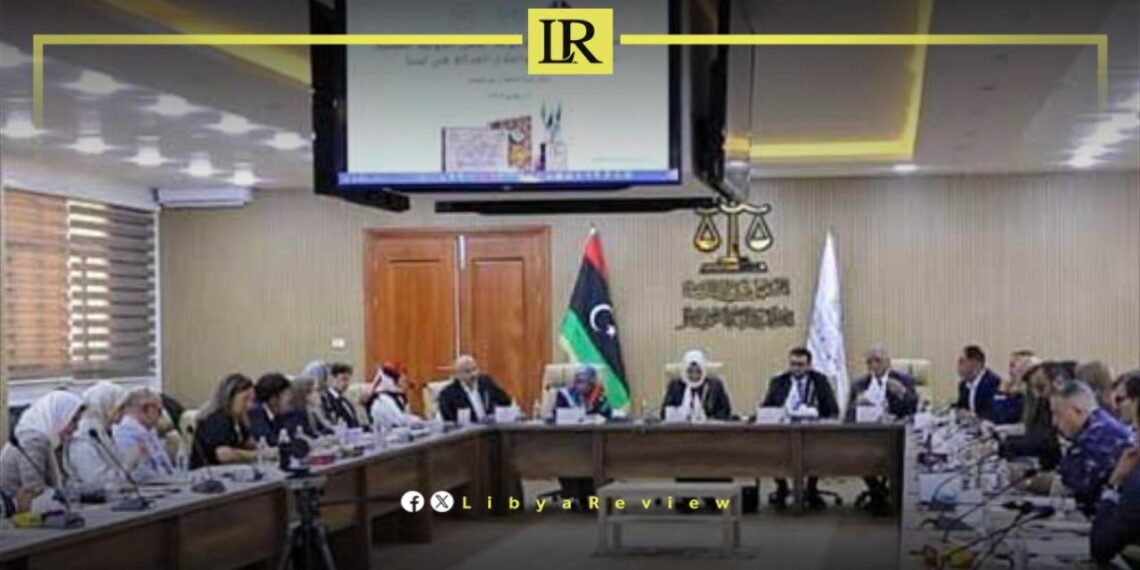On Sunday, the Rule of Law and Justice Reform Working Group in Libya, part of the International Follow-up Committee on the Berlin Process, held a meeting at the High Judicial Institute. The meeting was attended by Halima Abdulrahman, Minister of Justice in the Government of National Unity, as well as representatives from the Ministry of Interior, and delegates from the embassies of the United Kingdom, Italy, the Netherlands, and the European Union Mission in Libya, according to a statement from the Ministry of Justice.
The Rule of Law and Justice Reform Working Group in Libya includes representatives from several international entities collaborating with Libyan judicial authorities and law enforcement agencies. These organizations include the United Nations Support Mission in Libya (UNSMIL), the United Nations Development Programme (UNDP), and the United Nations Office on Drugs and Crime (UNODC). The Ministry of Justice highlighted that the group’s primary objective is to coordinate international support efforts aimed at strengthening the rule of law, justice, and law enforcement in Libya.
Libya’s journey towards judicial and law enforcement reform has been complex and challenging. Since the 2011 revolution that resulted in the ousting of Muammar Gaddafi, the country has faced persistent instability and conflict. The subsequent civil war fragmented national institutions, including the judicial system, and led to a proliferation of armed groups, complicating the enforcement of the rule of law.
The Berlin Process, initiated in 2020, brought together international stakeholders and Libyan factions to commit to a ceasefire and a political roadmap, which included the reform of the judicial and law enforcement sectors. This process aims to address the deep-seated issues within Libya’s justice system, which have been exacerbated by years of conflict and political division.
The recent meeting at the High Judicial Institute underscores the importance of coordination among international and Libyan stakeholders.
By bringing together representatives from various embassies and international organizations, the meeting aimed to align the efforts of all parties involved in supporting Libya’s judicial reform. Minister Halima Abdulrahman’s participation highlights the Libyan government’s commitment to these reforms. The involvement of the Ministry of Interior and other national agencies is crucial for implementing the changes needed to enhance the rule of law in the country.
The path to reform in Libya is fraught with challenges, but the continued support of the international community provides a strong foundation for progress. Effective coordination among international partners and Libyan authorities is essential for creating a cohesive strategy that addresses the root causes of instability and fosters a culture of justice and accountability.


